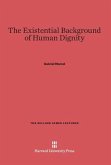This book presents itself as a new transformative-emancipatory path: it attempts to reconcile the sphere of humanity, and particularly that of dignity, with the dimensions of conscience, vulnerability, and identity. These dimensions cross several cultural boundaries and encompass various theoretical hypotheses, in line with certain critical ontologies.
Present society highlights increasing levels of inequality. Ethics should try to create constructivist bridges, which the author shows by a meta-ontological model, described in its «centripetal» inclination.
If we do not respect ourselves, others, and the environment that hosts us, we will never be able to define ourselves as «human» beings, that is, beings endowed with «dignity». Any responsibility makes sense to the extent that this respect - which we could include in the category of «taking care» - constitutes the epistemological background of ethical lives.
Present society highlights increasing levels of inequality. Ethics should try to create constructivist bridges, which the author shows by a meta-ontological model, described in its «centripetal» inclination.
If we do not respect ourselves, others, and the environment that hosts us, we will never be able to define ourselves as «human» beings, that is, beings endowed with «dignity». Any responsibility makes sense to the extent that this respect - which we could include in the category of «taking care» - constitutes the epistemological background of ethical lives.








